Graham Reid | | 3 min read
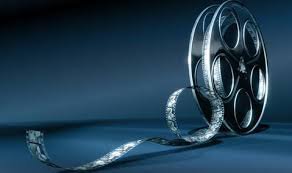
Some weeks ago in the New Zealand Herald their writer-at-large Peter Calder had an interesting column about movie theatres converting over to digital projection from 35mm prints.
As he noted, the technology for film projection had been “fundamentally unchanged since the first public film screening in a Paris cafe in 1895: sprockets on a roller catch the film by holes along its edges and pull it through the gate in front of the lamp”.
Until now.
Big spools of film are virtually non-existent now. Films are presented in, and screened from, digital formats. Projectionists are now IT operators, said Calder.
Those of us who have followed – with increasing haste – the changes in music production know this headlong race into technology all too well. From LP records and seven inch singles through cassettes, CDs then to invisible things on the internet has all occurred within the past 60 years. There are heavily begged questions however, most revolve on the point, has the music improved as a consequence?
It has certainly become more technical (analogue to digital, Auto-tune etc), but the actual art form itself?
In the world of cinema, this is a question which may be answered by comparing films starring the genius Buster Keaton with those starring the star Bruce Willis. You will make up your own mind, but context is everything for each of those performers.
Which is why, perhaps, you might find some answers in The Story of Film: An Odyssey, a series which starts screening on the Rialto channel this Sunday Sept 1, 7.25pm.
Taking in 12 decades of film – it starts with Thomas Edison, the Lumiere brothers in Lyon and at that 1895 Paris cafe which Calder mentioned – is narrated by the annoyingly softly spoken Irish (who describes Saving Private Ryan in the opening sequences as “a lie to tell the truth”, and cinema as an empathy machine).
The 15 hour-long episodes span six continents, take in scenes from a thousand films with important illustrative footage and includes interviews with major directors and actors.
The story is not seduced by Hollywood classics of cinema which present a romantic view of the world. The Story of Film – written and directed by Ireland
s Mark Cousins – nods to those tropes, but turns its lenses in other more pertinent directions, to “classical” Japanese films, to innovative European cinema, to things other than money which we are repeatedly told drives movies. “But the money man don't know the secrets of the human heart”.
It is time, says the poetic but monotone , to redrawn the map we have in out heads of cinema history. Half the films in Hollywood before 1925 were written by women, we learn.
So what really drives movies?
That is the question this mostly chronological series sets out to answer. It is ideas, human stories, visual references and homages to previous auteurs, actors and films, editing as a construction device, lighting and angles, directors and story writers who can get inside your head.
Many of the scenes and stories here will certainly stick in your head. But so might also Cousin's monotonous, murmuring and smug-sounding narration.
THE SYNOPSES OF THE FIRST FIVE EPISODES OF THE STORY OF FILM ARE . . .
EPISODE 1 – SUNDAY SEPTEMBER 1
The first episode in Mark Cousins' epic history of cinema reveals how this art form was born. Filmed in the buildings where the first movies were made, it shows that ideas and passion have always driven film, more than money and marketing. The programme reveals the story of the very first movie stars, close-ups and special effects, and travels to Hollywood to show how it became a myth. The story is full of surprises - such as the fact that the greatest and best-paid writers in these early years were women - and celebrates the glamour of the great movie cathedrals
EPISODE 2 – SUNDAY SEPTEMBER 8
Mark Cousins' epic history of film tells the fascinating story of the movies in the roaring twenties, when Hollywood became a glittering entertainment industry, and star directors such as Charlie Chaplin and Buster Keaton emerged. But the gloss and fantasy were challenged by movie makers the like of Robert Flaherty, Eric Von Stroheim and Carl Theodor Dreyer, who wanted films to be more serious and mature. Filmed in Hollywood, Denmark and Moscow, the programme revisits the battle for the soul of cinema and some of the greatest movies ever made.
EPISODE 3 – SUNDAY SEPTEMBER 15
The 1920s were a golden age for world cinema. The programme visits Paris, Berlin, Moscow, Shanghai and Tokyo to explore the places where movie makers were pushing the boundaries of the medium. German expressionism, Soviet montage and French impressionism and surrealism were passionate new film movements, but less well known are the glories of Chinese and Japanese films and the moving story of one of the great, now largely forgotten, movie stars, Ruan Lingyu.
EPISODE 4 – SUNDAY SEPTEMBER 22
The arrival of sound in the 1930s changed everything for cinema. This episode revisits the birth of new types of film: screwball comedies, gangster pictures, horror films, westerns and musicals, and discovers the master of most of them, Howard Hawks. Far away from Hollywood, in England Alfred Hitchcock hits his stride, and French directors become masters of mood. And the programme reveals what three of the great films of 1939 - The Wizard of Oz, Gone with the Wind and Ninotchka - have in common.
EPISODE 5 – SUNDAY SEPTEMBER 29
This episode reveals how the trauma of war made cinema more daring. The story starts in Italy, and moves to Hollywood, from Orson Welles to the darkening of American film and the drama of the McCarthy era. Screenwriters Paul Schrader and Robert Towne discuss the era, while Stanley Donen, who directed Singin' in the Rain, talks exclusively about his career. The programme also reveals how British films such as The Third Man best sum up these extraordinary years.

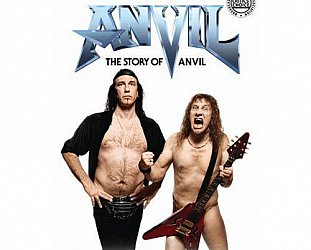
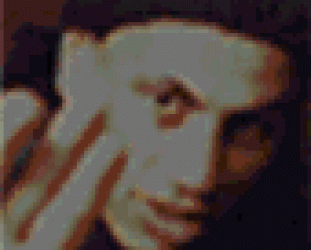
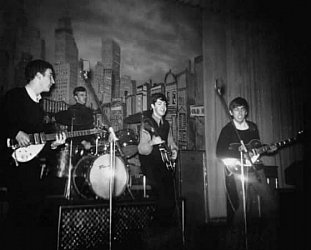
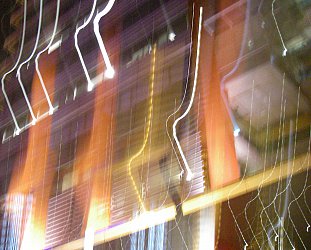
post a comment